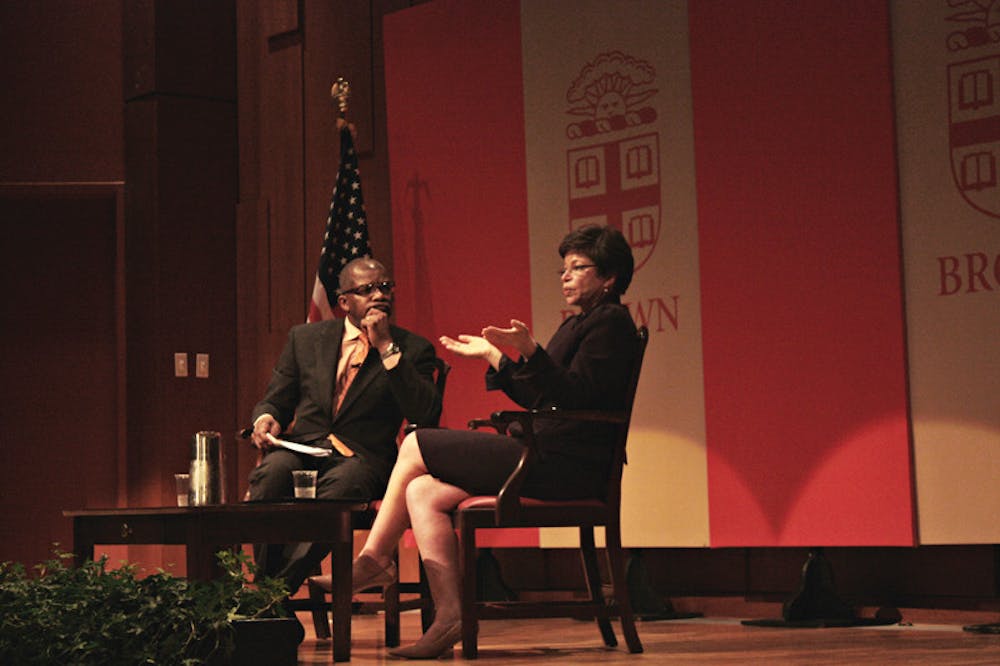Valerie Jarrett, senior adviser to President Obama, discovered her passion for public service after moving from an elite Chicago law firm in the Sears Tower to a cubicle facing an alley in the mayor's office, she told a nearly full Salomon 101 yesterday afternoon.
In her lecture, part of the Doherty-Granoff Forum on Women Leaders, Jarrett interspersed anecdotes of her personal journey from city politics to the White House with advice for finding success after college. She placed particular emphasis on how her gender influenced her life journey and laid out the obstacles women continue to face in the labor force.
"A lot has changed since I was in school," Jarrett said. Women made up 25 percent of her University of Michigan law school class in 1981, compared to 50 percent in her daughter's law school class last year. And the first legislation Obama signed was the Lilly Ledbetter Fair Pay Act, designed to help women facing wage discrimination take legal action.
But Jarrett, who chairs the White House Council on Women and Girls, said glaring gender disparities persist. A report conducted by the council last month documented the continued gaps between men and women in the labor force, particularly in the areas of science and technology. Women earn about 75 cents for every dollar a man earns in comparable occupations, she said.
Jarrett transitioned from policy talk to advice about life after college. "Since I'm old enough to be your parent, I get to tell you what I think," she said.
She implored audience members to follow their passions, as she did by entering public service. "I was doing what everyone else in the world thought I should do," she said of her job at the law firm. But she said she was "miserable" until a friend suggested she go into public service, telling her "you will feel like you are part of something much bigger than yourself."
As deputy chief of staff for Chicago Mayor Richard M. Daley, Jarrett hired Michelle Obama and began an advising relationship with the Obamas that continued on the campaign trail and in the White House.
Students should also seek to escape their comfort zones and seize opportunities, Jarrett said. "Opportunity almost never knocks at the opportune moment."
After her speech, Jarrett answered policy questions.
Jarrett acknowledged the problems faced by cities, which must balance budgets by cutting vital services. Lack of coordination between agencies prevents the federal government from enacting policies to address urban decline, she said. "Cities are the economic engine of our country and need to be seen as places of opportunity, not just challenge."
Jarrett ended with an anecdote encapsulating the substantive change that can come from public service.
The night before the health care reform bill passed, Obama held a large party for all staffers and advisers involved in its passage. As the crowd was leaving Obama's event, Jarrett said she asked him how the jubilant night compared to election night, and he replied, "There's no comparison. Election night simply created the possibility of change. Tonight, we've actually changed."

ADVERTISEMENT




